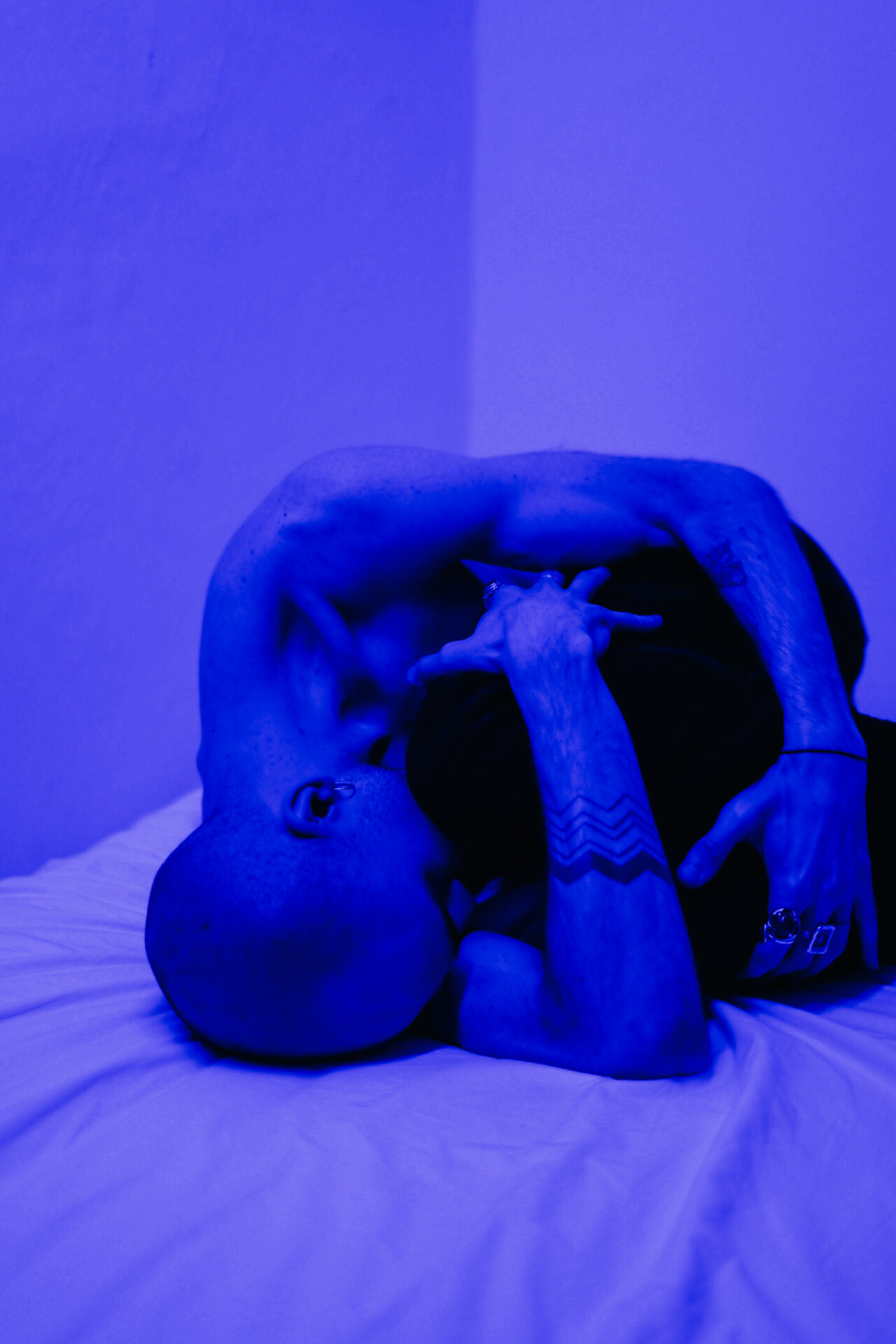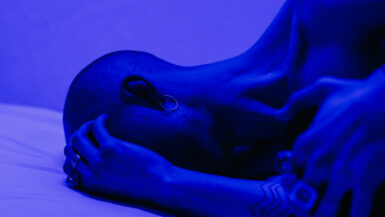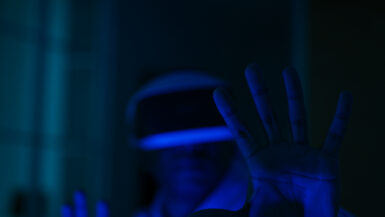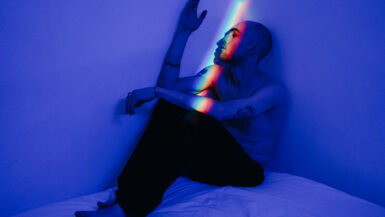In today’s fast-paced world, most of us are exposed to various sources of blue light, such as smartphones, tablets, and computer screens. While this has undoubtedly contributed to our connectedness and productivity, it has also raised concerns about its impact on our sleep and overall well-being. In this article, we delve into the connection between blue light and jet lag, examining the science behind the phenomenon and how it affects our circadian rhythms. We will also explore potential strategies to mitigate the negative effects of blue light, ensuring a better balance between our technological habits and our body’s natural sleep patterns. As you read, you will gain a deeper understanding of the intricate relationship between blue light exposure, sleep quality, and daily productivity in our modern world.
How Electronic Devices Contribute to Jet Lag
In this section, we will discuss how our reliance on electronic devices can inadvertently contribute to jet lag, exacerbating its symptoms and prolonging our adjustment to new time zones. By understanding the role that blue light plays in this process, we can take steps to mitigate its effects and improve our sleep and productivity while traveling.
The Influence of Blue Light on Circadian Rhythms
Our internal body clock, or circadian rhythm, is responsible for regulating our sleep-wake cycle. Light, particularly blue light, plays a crucial role in the regulation of this rhythm. Exposure to blue light during daytime hours helps keep us alert and awake, while the absence of blue light at night encourages the production of melatonin, the hormone responsible for inducing sleep. However, when we expose ourselves to electronic devices emitting blue light during the evening, our circadian rhythms can be disrupted, making it more challenging to fall asleep and adjust to new time zones when traveling. For more information on how blue light affects our sleep and mental performance, check out The Impact of Blue Light on Sleep and Mental Performance.
Electronic Devices and Travel
During long flights or layovers, many travelers rely on electronic devices such as smartphones, tablets, and laptops for entertainment or work. This prolonged exposure to blue light can significantly impact our ability to adjust to new time zones, leading to increased jet lag symptoms such as fatigue, insomnia, and difficulty concentrating. Furthermore, the use of electronic devices upon arrival at our destination can further delay our adaptation to the local time, leading to decreased productivity and overall well-being.
Strategies to Reduce Blue Light Exposure
To minimize the impact of blue light on our sleep and productivity while traveling, consider implementing the following strategies:
- Limit the use of electronic devices at least one to two hours before bedtime, allowing your body to naturally wind down and prepare for sleep.
- Adjust your device settings to reduce blue light emission, using features such as night mode or downloading apps that filter blue light.
- Invest in blue light-blocking glasses, which can help reduce your exposure to blue light from screens, particularly in the evening.
- Try to maintain a consistent sleep schedule and practice good sleep hygiene, even when traveling or adjusting to a new time zone, to ensure optimal sleep quality and productivity.
By being mindful of our electronic device usage and taking steps to minimize blue light exposure, we can better manage the effects of jet lag and maintain our productivity and well-being while traveling.
Understanding Blue Light and Its Effects on Sleep
As we delve deeper into the connection between blue light and jet lag, it’s crucial to develop a comprehensive understanding of how blue light affects our sleep. In this subsection, we will explore the science behind blue light’s impact on our circadian rhythms, sleep quality, and overall health. We will also discuss various sources of blue light, helping you identify potential areas of concern and develop strategies to minimize its effects on your sleep.
Defining Blue Light and Its Sources
Blue light is a high-energy, short-wavelength light that is present in sunlight and artificial light sources such as LED lights, fluorescent bulbs, and electronic devices like smartphones, tablets, and computer screens. While blue light is crucial for regulating our circadian rhythms and promoting alertness during daylight hours, excessive exposure during the evening can disrupt our natural sleep patterns and negatively affect our health.
The Science Behind Blue Light and Sleep
Our body’s internal clock, or circadian rhythm, is heavily influenced by exposure to natural light and darkness. Blue light exposure during the day helps suppress melatonin production, keeping us awake and alert. However, as the sun sets and blue light exposure decreases, melatonin production increases, signaling to our body that it’s time to prepare for sleep.
When we expose ourselves to blue light from electronic devices during the evening, our brain perceives this light as daylight, suppressing melatonin production and delaying the onset of sleep. This disruption in our sleep-wake cycle can lead to a variety of sleep-related issues, such as difficulty falling asleep, reduced sleep quality, and daytime fatigue.
Health Implications of Blue Light Exposure
Chronic exposure to blue light during nighttime hours can have significant long-term effects on our health. Studies have linked excessive blue light exposure to an increased risk of sleep disorders, obesity, cardiovascular disease, and even certain types of cancer. Furthermore, poor sleep quality resulting from blue light exposure can lead to cognitive impairment, reduced productivity, and a weakened immune system.
Strategies for Minimizing Blue Light Exposure
To mitigate the negative effects of blue light on sleep and overall health, consider implementing the following measures:
- Create a sleep-friendly environment by reducing exposure to blue light sources during the evening, such as turning off or dimming LED lights and using warm-toned bulbs.
- Establish a digital curfew by avoiding electronics at least one to two hours before bedtime, allowing your body to naturally wind down and prepare for sleep.
- Utilize blue light filtering options on your devices, such as night mode or dedicated apps that reduce blue light emissions.
- Consider investing in blue light-blocking glasses to help shield your eyes from blue light exposure during nighttime hours.
As we gain a deeper understanding of blue light and its effects on sleep, we can make more informed decisions regarding our exposure to electronic devices and artificial light sources. By implementing strategies to minimize blue light exposure, we can improve our sleep quality, overall well-being, and increase our resilience against the negative effects of jet lag.
Blue Light Blocking Techniques for Frequent Travelers
Frequent travelers face unique challenges when it comes to managing the impact of blue light on their sleep and productivity. Factors such as time zone changes, extended screen time during flights, and irregular sleep schedules can exacerbate the negative effects of blue light exposure. In this subsection, we will discuss various blue light blocking techniques that can be particularly beneficial for frequent travelers, ensuring a smoother transition between time zones and a more restful night’s sleep.
Invest in Blue Light Blocking Glasses
One effective way to protect your eyes from blue light emitted by screens is to invest in blue light-blocking glasses. These glasses contain specialized lenses that filter out harmful blue light, allowing you to continue using electronic devices without disrupting your circadian rhythm. For frequent travelers, these glasses can be especially helpful during long flights or when working on a laptop in the evening.
Utilize Blue Light Filtering Apps and Settings
Most smartphones, tablets, and laptops offer built-in settings or apps that can help reduce blue light emissions. Features such as night mode or dedicated blue light filtering apps can be particularly beneficial for frequent travelers who may rely on their devices for entertainment or work during long trips. By reducing blue light exposure, travelers can minimize its impact on their sleep and productivity.
Create a Relaxing Sleep Environment
Frequent travelers often find themselves sleeping in unfamiliar environments, such as hotels or Airbnb rentals. Ensuring that your sleeping space is conducive to rest can help mitigate the effects of blue light on your sleep. Consider investing in blackout curtains, a sleep mask, or even a portable white noise machine to create a more relaxing environment. Additionally, opt for warm-toned lighting in your room, as opposed to harsh, blue-toned LED lights, to promote a more restful atmosphere.
Establish a Consistent Sleep Schedule
Maintaining a consistent sleep schedule, even when traveling, can help regulate your circadian rhythm and improve your resilience against the effects of blue light exposure. Aim to go to bed and wake up at the same times each day, regardless of your time zone. This consistency can help your body more readily adjust to new environments and minimize the impact of jet lag.
Practice Mindful Electronic Device Usage
Being mindful of how and when you use electronic devices can significantly impact your sleep and productivity while traveling. Limit screen time in the hour or two before bedtime, and avoid using devices in bed. Instead, opt for more relaxing activities such as reading a physical book or practicing meditation to help wind down and signal to your body that it’s time for sleep.
By adopting these blue light blocking techniques, frequent travelers can better manage the effects of blue light and jet lag, ensuring a more restful night’s sleep and improved productivity during their trips. As technology continues to play an integral role in our lives, it’s essential to strike a balance between staying connected and prioritizing our health and well-being.
Jet Lag Symptoms and Their Link to Blue Light Exposure
Jet lag is a common issue faced by travelers, particularly those who cross multiple time zones during their journeys. It is characterized by a range of symptoms that result from the disruption of our body’s internal clock, or circadian rhythm. In this subsection, we explore the various symptoms of jet lag and how they are linked to blue light exposure. By understanding this connection, we can develop strategies to minimize the effects of jet lag and ensure a smoother, more enjoyable travel experience.
Common Symptoms of Jet Lag
Jet lag can manifest in a variety of ways, with symptoms ranging from mild to severe depending on the individual and the extent of the time zone shift. Some common jet lag symptoms include:
- Insomnia or difficulty falling asleep
- Daytime fatigue and drowsiness
- Difficulty concentrating and impaired cognitive function
- Mood swings, irritability, and depression
- Gastrointestinal issues such as constipation or diarrhea
- General malaise and a weakened immune system
These symptoms can significantly impact a traveler’s ability to enjoy their trip, as well as their productivity if traveling for work.
How Blue Light Exposure Contributes to Jet Lag Symptoms
The link between blue light exposure and jet lag symptoms lies in the way our circadian rhythms are influenced by light. As mentioned earlier, blue light plays a crucial role in regulating our sleep-wake cycle, with exposure during the day promoting alertness and the absence of blue light at night encouraging sleep.
When we travel across multiple time zones, our internal clock becomes misaligned with the local time, leading to the symptoms of jet lag. Blue light exposure from electronic devices can exacerbate these symptoms by further disrupting our circadian rhythms. For example, using a smartphone or tablet before bedtime can suppress melatonin production and delay sleep onset, making it even more challenging to adjust to a new time zone.
Strategies to Minimize Jet Lag Symptoms Related to Blue Light Exposure
To reduce the impact of blue light exposure on jet lag symptoms, travelers can implement several strategies. Some practical measures include:
- Avoiding excessive screen time, particularly in the evening, to help regulate melatonin production and encourage a more natural sleep-wake cycle.
- Using blue light filtering options on electronic devices or wearing blue light-blocking glasses to minimize the effects of blue light on sleep.
- Gradually adjusting sleep schedules before departure to better align with the destination’s time zone, helping to minimize the severity of jet lag symptoms.
- Maximizing exposure to natural daylight upon arrival at the destination, which can help reset the internal clock and promote alertness during daytime hours.
By taking these steps, travelers can better manage the symptoms of jet lag related to blue light exposure and enjoy a more seamless transition to their new time zone. Ultimately, understanding the connection between blue light and jet lag empowers individuals to make more informed decisions about their electronic device usage and travel habits, ensuring a healthier and more enjoyable travel experience.
Natural Remedies to Minimize Blue Light Impact on Sleep
In addition to technological solutions and lifestyle changes, several natural remedies can help mitigate the impact of blue light on sleep, particularly for those who are susceptible to jet lag. These remedies can support the body’s natural sleep-wake cycle and improve overall sleep quality, ensuring a smoother transition when traveling across time zones. In this subsection, we will explore several natural remedies that can be used to counteract the effects of blue light on sleep, providing travelers with additional tools to maintain their well-being and productivity.
Herbal Supplements to Support Sleep
Certain herbal supplements have been used for centuries to promote relaxation and improve sleep quality. Some popular options include:
- Valerian root: Known for its mild sedative effects, valerian root can help reduce the time it takes to fall asleep and improve overall sleep quality.
- Chamomile: Often consumed as a tea, chamomile has calming properties that can help promote relaxation and improve sleep.
- Lavender: The scent of lavender has been found to have a calming effect, which can be helpful for those who have trouble falling asleep. Consider using lavender essential oil in a diffuser or applying it topically (diluted with a carrier oil) before bedtime.
It’s important to consult with a healthcare professional before using any herbal supplements, as they may interact with medications or have side effects for certain individuals.
Melatonin Supplementation
Melatonin is a hormone produced by the body that regulates our sleep-wake cycle. When our exposure to blue light is reduced in the evening, melatonin production increases, signaling to our body that it’s time to sleep. Supplementing with melatonin can be a helpful tool for travelers who struggle to adjust to new time zones, as it can help encourage sleep at the appropriate local time. However, it’s essential to use melatonin supplements cautiously and under the guidance of a healthcare professional, as improper use can further disrupt the sleep-wake cycle.
Relaxation Techniques
Incorporating relaxation techniques into your bedtime routine can help signal to your body that it’s time to wind down and prepare for sleep, counteracting the stimulating effects of blue light exposure. Some effective relaxation techniques include:
- Deep breathing exercises: Practicing slow, deep breaths can help activate the body’s relaxation response, reducing stress and promoting a sense of calm.
- Progressive muscle relaxation: This technique involves tensing and relaxing different muscle groups in a systematic manner, helping to release tension and induce relaxation.
- Meditation or mindfulness practices: Focusing on the present moment and connecting with your breath can help quiet the mind and encourage a sense of relaxation.
By incorporating these natural remedies into your routine, you can support your body’s natural sleep-wake cycle and minimize the impact of blue light exposure on sleep. As a result, travelers can better manage jet lag and maintain their well-being and productivity, even when crossing multiple time zones.





Leave a reply